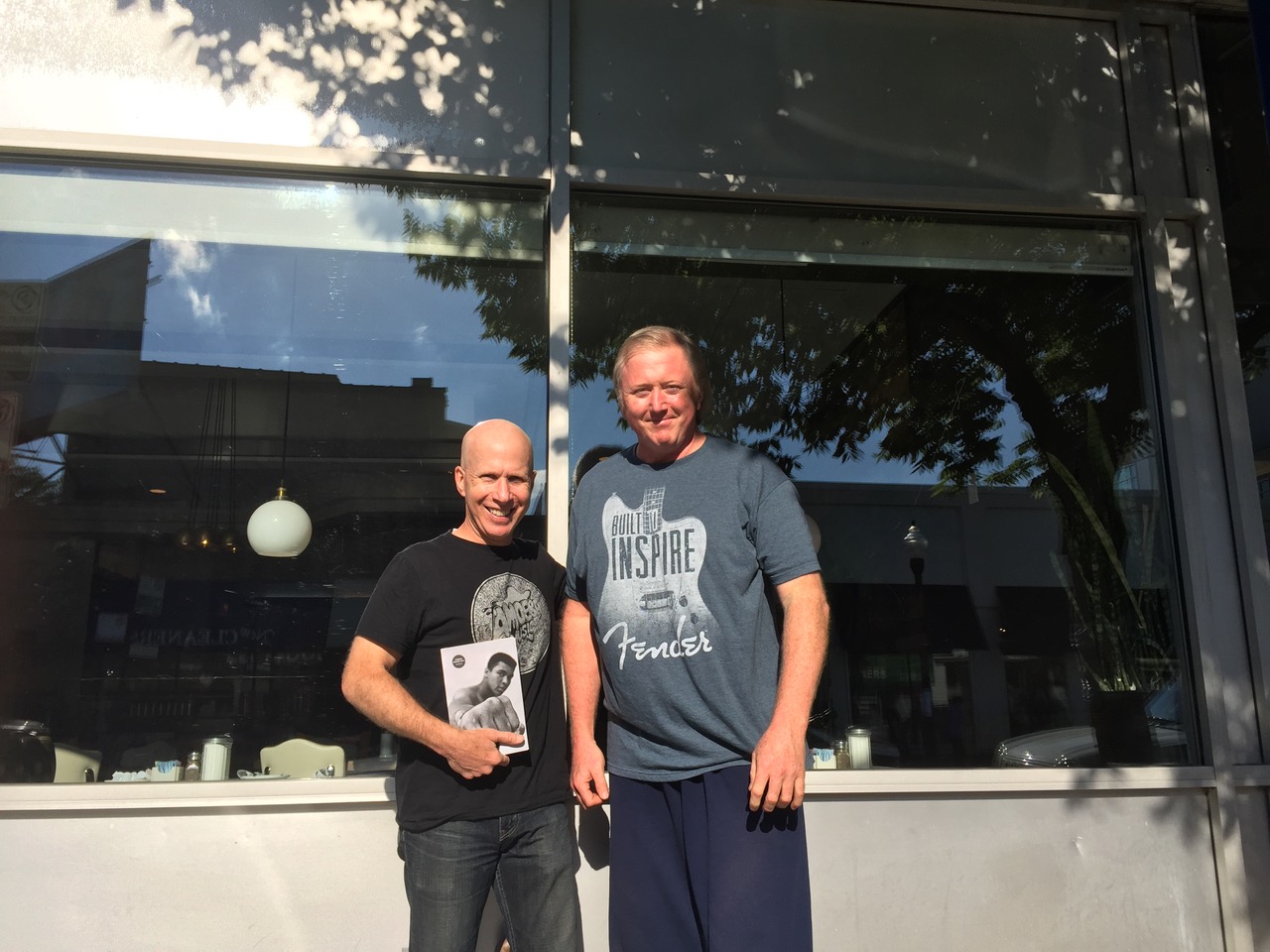Ep. 7: The World’s Greatest Record Player
Author Jonathan Eig keeps an eye on eBay while he writes, looking for Muhammad Ali memorabilia. As a collector of Ali’s cologne and bed sheets, when he saw a listing for Ali’s record player, he had to have it. Listen to how a childhood record player unlocked a hidden story of the later years of The World’s Greatest.
When I'm writing a book I keep an eye on eBay. It's a good randomizer. I've purchased Muhammad Ali items: photos of Ali with women I can't identify; Ali bedsheets; Muhammad Ali cologne. It's about 30 years old now. It smells awful.
I found a listing for Muhammad Ali's record player. It's giant with light wood. The description had to be 2,000 words long. The seller claimed to be the son of one of Ali's early lawyers. Muhammad still went by Cassius Clay, and the guy had some of the Clay family belongings. The opening bid was $250. No one had bid. Figured it wasn't really Ali's record player. I bid anyway.
I was ready to send the money, but the seller emailed me and said he was bringing it to Chicago. Definitely has to be a scam, right? Figured I'll never get the record player. Then I got a call from the seller. He was Chicago, and wanted to meet. We met a Caribou Coffee on Clark Street. He pulled up in a huge van with a whole bunch of boxes. He was a big guy - 6'5", 280. He opened the trunk and showed me the record player. His name was Frank Sadlo.
Frank knew Ali for years. He helped Ali's mother clean out the house after Ali died. That's how he got the record player. Frank's dad was a white lawyer working in the poor black neighborhoods of Louisville in the 40s and 50s. He represented Cassius Clay, Sr. and wrote the first professional contract for Muhammad Ali. The Clay family dumped him later for a big-name lawyer.
Frank and I spent the day together talking. He said he had more stuff in his car to show me. He had Cassius Clay's original boxing contract and other legal records. Then Frank told me a story. He had helped Ali in the 1980s when Ali was getting sick. By the 1990s Frank hadn't seen Ali in years. Frank showed up to Ali's house and said, "My father's in the hospital." Ali pushed back his chair, got up and said let's go. Ali went with Frank to the hospital and spent all day there. He visited Frank's father and everybody else who wanted Ali to visit.
Frank was touched. He thought about how no one ever did anything for Muhammad. What could Frank do? He knew the 1960 Olympics launched Ali, and the 1996 games were coming up. Ali had lost his Olympic medal. Frank wanted Ali to get a new medal and light the torch. Frank was working at Applebee's. He wasn't anybody special, but wanted to try. Why not? He went on a letter writing campaign. Frank showed me the carbon copies of all the letters he wrote and the log of the calls he made to Olympic officials.
Fast forward some time later, Frank was working at Applebee's while the Olympics are on T.V. he sees Janet Evans carry the torch up a ramp. Everyone was waiting to see who would light the final flame. People thought it was Hank Aaron. Some people thought Evander Holyfield.
Janet Evans handed the torch to a figure in an all-white track suit. People saw it was Muhammad Ali. There was a gasp. People were stunned. The most beautiful man in the world was a shadow of himself. He was trembling. He had disappeared and come back. Then there was a roar and standing ovation. People didn't think he could light the flame. There was wind and he was shaking. Finally he got it done. He was a hero again. He was human.
Episode 7 Bonus: Muhammad Ali Playlist
Get down with legendary artists Sam Cooke, Aretha Franklin, Stevie Wonder, and even recordings of Ali himself. Listen to Spotify playlist here.
Learn more about Muhammad Ali's later years in my book. Preorder your copy through the link below.



